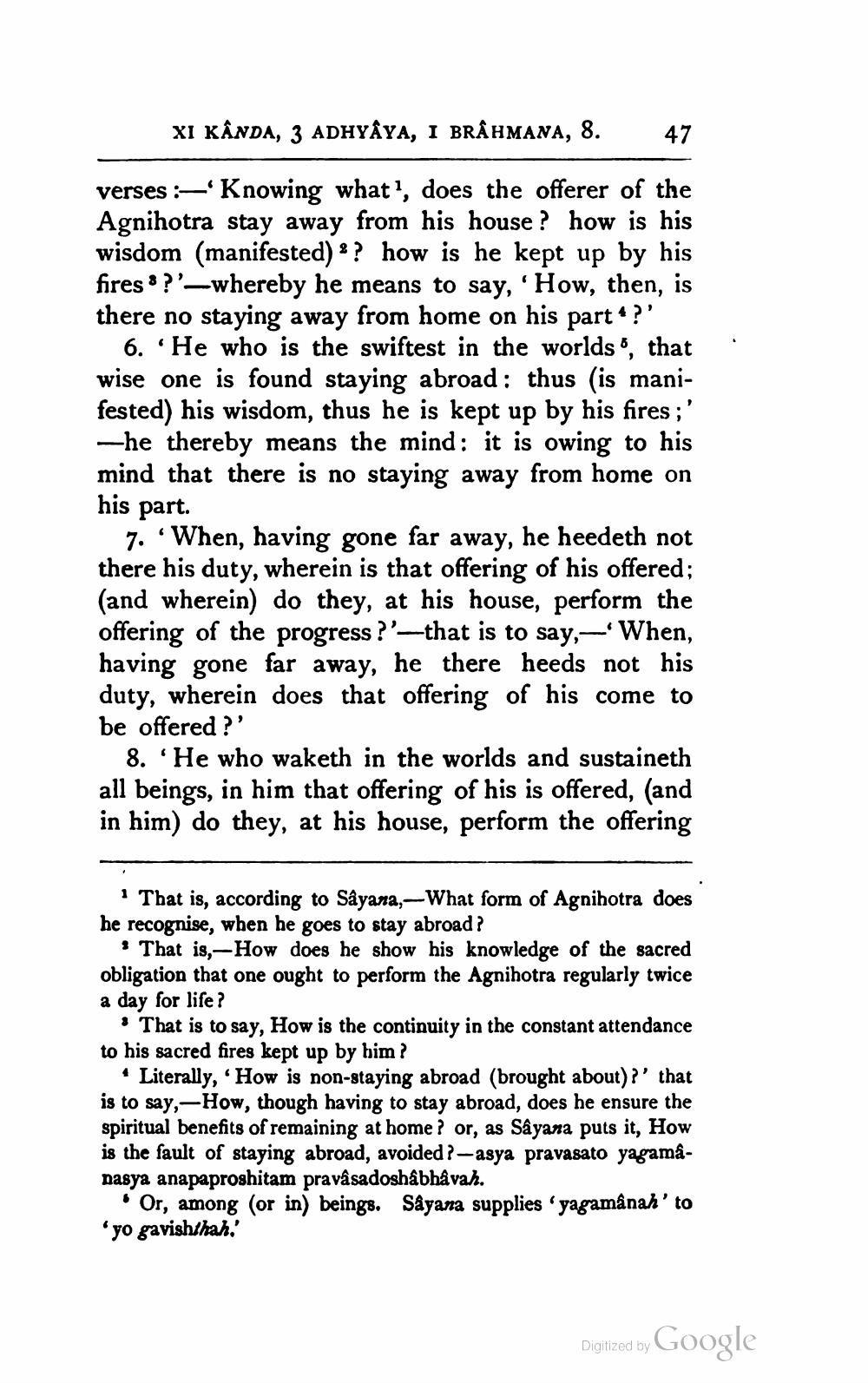________________
XI KÂNDA, 3 ADHYÂYA, I BRÂHMANA, 8.
47
verses :— Knowing what', does the offerer of the Agnihotra stay away from his house ? how is his wisdom (manifested) ? ? how is he kept up by his fires : ?'—whereby he means to say, 'How, then, is there no staying away from home on his part *?'
6. “He who is the swiftest in the worlds", that wise one is found staying abroad: thus (is manifested) his wisdom, thus he is kept up by his fires ;' -he thereby means the mind : it is owing to his mind that there is no staying away from home on his part.
7. When, having gone far away, he heedeth not there his duty, wherein is that offering of his offered; (and wherein) do they, at his house, perform the offering of the progress ?'-that is to say,— When, having gone far away, he there heeds not his duty, wherein does that offering of his come to be offered ?'
8. “He who waketh in the worlds and sustaineth all beings, in him that offering of his is offered, (and in him) do they, at his house, perform the offering
"That is, according to Sâyana, -What form of Agnihotra does he recognise, when he goes to stay abroad?
• That is,—How does he show his knowledge of the sacred obligation that one ought to perform the Agnihotra regularly twice a day for life?
. That is to say, How is the continuity in the constant attendance to his sacred fires kept up by him?
Literally, 'How is non-staying abroad (brought about)?' that is to say,-How, though having to stay abroad, does he ensure the spiritual benefits of remaining at home? or, as Sâyana puts it, How is the fault of staying abroad, avoided ?-asya pravasato yagamanasya anapaproshitam pravâsadoshâbhâ vah.
Or, among (or in) beings. Såyana supplies 'yagamânah' to 'yo gavishthan,'
Digitized by Google




